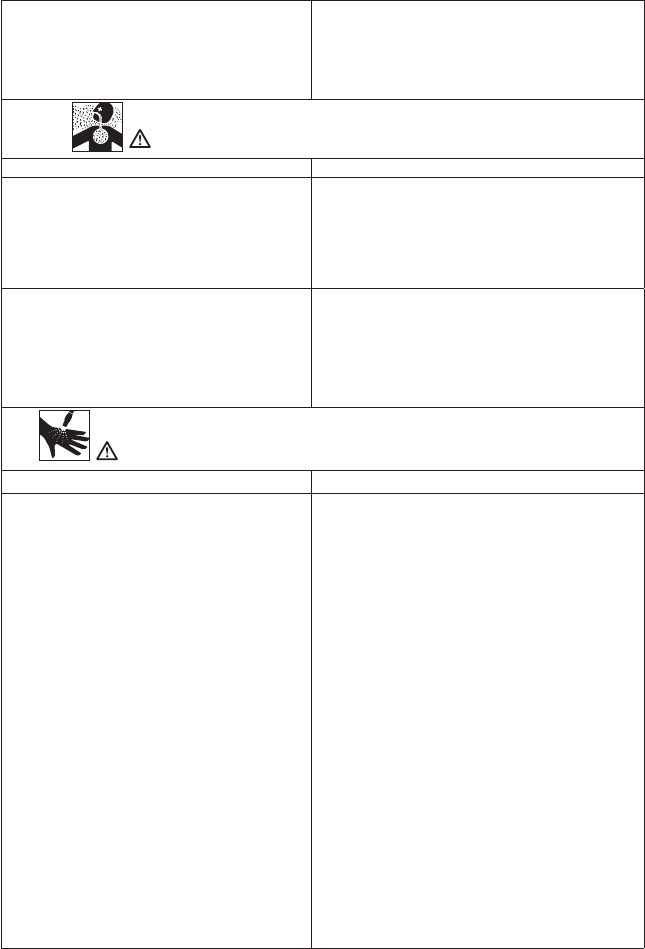
28- ENG
• Use of acids, toxic or corrosive
chemicals, poisons, in sec ti cides,
or any kind of flam ma ble solvent
with this product could re sult in
se ri ous injury or death.
• Donotsprayflammableliquids.
DANGER: RISK TO BREATHING (ASPHYXIATION)
WHAT CAN HAPPEN HOW TO PREVENT IT
• Breathing exhaust fumes will
cause se ri ous injury or death!
En gine exhaust contains carbon
mon ox ide, an odorless and deadly
gas.
• Operate pressure washer in a well-
ventilated area. Avoid en closed areas
such as ga rages, base ments, etc.
• Neveroperateunitinornearaloca-
tion occupied by humans or animals.
• Some cleaning fluids contain
substanc es which could cause
injury to skin, eyes or lungs.
• Use only cleaning fluids specifically
rec om mend ed for high-pressure
washers. Fol low manufacturers
recommendations. Do not use
chlorine bleach or any other corrosive
compound.
DANGER: RISK OF FLUID INJECTION AND LACERATION
WHAT CAN HAPPEN HOW TO PREVENT IT
• Yourpressurewasheroperatesat
fluid pressures and velocities high
enough to penetrate human and
animal flesh, which could result in
amputation or other serious injury.
Leaks caused by loose fittings or
worn or damaged hoses can result
in injection injuries. DO NOT TREAT
FLUID INJECTION AS A SIMPLE
CUT! See a physician immediately!
• Inspect the high-pressure hose
regularly. Replace the hose
immediately if it is damaged, worn,
has melted from contacting the
engine, or shows any signs of cracks,
bubbles, pinholes, or other leakage.
Never grasp a high-pressure hose
that is leaking or damaged.
• Nevertouch,grasporattempttocover
a pinhole or similar water leak on the
high-pressure hose. The stream of
water IS under high pressure and
WILL penetrate skin.
• Neverplacehandsinfrontofnozzle.
• Direct spray away from self and
others.
• Make sure hose and fittings are
tightened and in good condition.
Never hold onto the hose or fittings
during op er a tion.
• Donotallowhosetocontactmuffler.
• Neverattachorremovewandorhose
fittings while sys tem is pres sur ized.


















